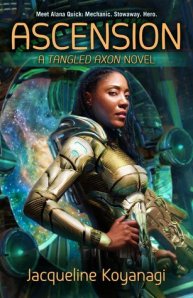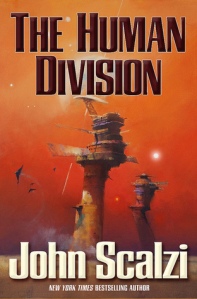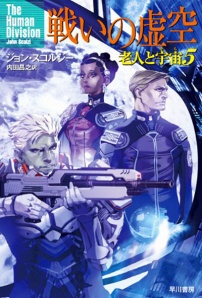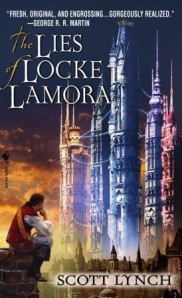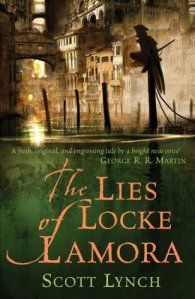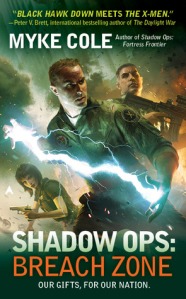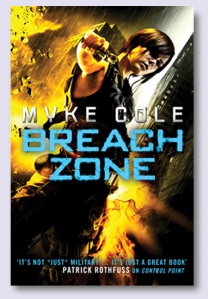I consider myself a jack of all trades kind of nerd. I know a little bit about a lot of nerdy things, but I wouldn’t really call myself an expert on much. Comics are one of those topics that I know enough to get in trouble with, but that’s about it.
See, I’ve always found them fascinating and I knew enough of the cool trivia but the rabbit hole goes real far when it comes to comic books. When I use the term “comics” I am quite specifically referring to the classic Marvel or DC superheroes. I have always thought that Doctor Who and comic books are the toughest fandoms to get into from the outside because the rabbit hole runs deep. That rabbit hole I mentioned is such an extensive history, you have to just jump into the deep end and hope you can figure it out. And that doesn’t even factor in the vigor and exuberance (when it’s positive) or anger and elitism (when it’s negative) that some people take these fandoms to heart. That makes it very intimidating to get into. Doubly so for any non-males who want to get into comics since it is traditionally a boys club.
But like any good kid from the 90s, I know most of my comic book lore from cartoons. I was eight years old when Fox Kids dropped the X-Men cartoon and I’ll still watch it online occasionally. I was a cartoon nerd before any other kind of nerd. It was the first job I ever dreamed of until I realized I sucked at drawing. Between X-Men, Superman, (the ultimately fantastic) Batman and later on X-Men Evolution, Batman Beyond and Static Shock, there were a lot of comics animated on tv. Teen Titans came along when I was in college. I watched them all except for Spiderman. Peter Parker is a weenie. I still don’t really like him that much. So anyone in the general vicinity of 30 who watched Saturday Morning Cartoons as a kid, has a basic knowledge of comic books.
 It was not easy to jump from one medium to the other. Comic books are expensive. From time to time over the years, I’d get a bit of disposable income and try to keep up with a title or two. The last time I did, was around 05 and 06 and I grabbed up the New X-Men title because it was early on in its run. I thought it would be easier to dive into at issue #12 as opposed to #600something that Uncanny X-Men was on at the time. I think I kept up with it for six months until I got laid off from my job. The world spanning events Marvel likes to drop would have killed my budget anyways because you need a dozen different titles each month to figure out what the hell was going on with the characters you actually like.
It was not easy to jump from one medium to the other. Comic books are expensive. From time to time over the years, I’d get a bit of disposable income and try to keep up with a title or two. The last time I did, was around 05 and 06 and I grabbed up the New X-Men title because it was early on in its run. I thought it would be easier to dive into at issue #12 as opposed to #600something that Uncanny X-Men was on at the time. I think I kept up with it for six months until I got laid off from my job. The world spanning events Marvel likes to drop would have killed my budget anyways because you need a dozen different titles each month to figure out what the hell was going on with the characters you actually like.
So I lost track of comic books for most of my 20s aside from a couple Mass Effect trades I got for my Nook when it was brand new. I nabbed a couple Runaways trades too. I enjoyed the story but the cost to content ratio sucked. Fifteen bucks for an ebook comic I would read in one or two sittings. I could buy three or four novels on my Nook for that.
 But for all that, I wanted to read them again. The comic landscape was changing for the better. Kamala Khan, the new Thor. Comics seem like they’re growing up a bit and becoming more inclusive. That makes for better storytelling. That makes me want to read them. Novel writers like Peter V Brett have written comics. Chuck Wendig is working on one. Sam Sykes teamed up with one of his favorite artists to write a prequel comic for his latest book. Recommendations from people I already know I like to read are how I find new stories now.
But for all that, I wanted to read them again. The comic landscape was changing for the better. Kamala Khan, the new Thor. Comics seem like they’re growing up a bit and becoming more inclusive. That makes for better storytelling. That makes me want to read them. Novel writers like Peter V Brett have written comics. Chuck Wendig is working on one. Sam Sykes teamed up with one of his favorite artists to write a prequel comic for his latest book. Recommendations from people I already know I like to read are how I find new stories now.
So I found Marvel Ultimate. Netflix for comics? Friggin’ brilliant. Comic books look great on my Nook and the bite sized stories are perfect when there is a two-year-old running around the house.
I’ve been rocking Marvel Ultimate for a month or so. The first think I read was the start of Carol Danvers Ms. Marvel but that started to overlap with the Civil War event in the Marvel Universe. The side of “law and order” was the side of sanctimonious tools and I wasn’t really feeling a giant world spanning event right at the moment. I searched by character and read the very short run starring Jubilee as I think I may have been the only person ever to think the 90s cartoon Jubilee was cool. Two days into comics and I was already bummed that a title I wanted to read was cancelled after six issues (even if it was from years ago). I read solo titles from Mystique, who is my new favorite villain, and Gambit, who was bad ass in the old cartoon and still exudes cool. I read the whole Dark Avengers run and am working on Guardians of the Galaxy (no, I haven’t seen the movie to compare the two). I am toying with reading the entire X-Men run going back to the sixties, but that’s a huge thing to dive into.
My first thought is that the more complex character, the better. That transcends medium and is true across comics, books, film, tv and so on. I find it is way more magnified though when dressed up with the tropes of superheroes. Everyone is larger than life. The bad guys are really bad and the good guys are really good. The extreme ends of that spectrum are boring though. The demonic/evil/psychopathic villain is just set dressing. The paladin type hero who embodies all that is good and noble is boring as shit. Scott Summers, Captain America, (the aforementioned weenie) Peter Parker… they don’t interest me one single bit. I don’t want a lawful good character.
 The universal storytelling wisdom of “Every villain is the hero of their own story” is another one of those things magnified in comics. Magneto was always compelling because he thought he was doing the right thing. Mystique is the same way but with a lot more kick ass attitude. Reading about the bad guys in Dark Avengers was fun for the different PoV, but non-super Victoria Hand was the most interesting character in that run because she truly bought into what Osborne was doing and thought she was part of the good guys while enabling the real villains.
The universal storytelling wisdom of “Every villain is the hero of their own story” is another one of those things magnified in comics. Magneto was always compelling because he thought he was doing the right thing. Mystique is the same way but with a lot more kick ass attitude. Reading about the bad guys in Dark Avengers was fun for the different PoV, but non-super Victoria Hand was the most interesting character in that run because she truly bought into what Osborne was doing and thought she was part of the good guys while enabling the real villains.
So I’ve been finding some good storytelling. Fantastic. Comics aren’t just about the story telling thought.
And the art can be…. problematic.
I’m a guy, who likes girls and even still, unnecessary cheesecake shots are unnecessary. Holy crap unnecessary.
In Dark Avengers when Victoria Hand marches up to Molecule Man, who just housed everyone else, he dissolved her uniform and gear leaving her in a tank top and underwear. Buh? That doesn’t add anything to the story. If you’re going for the “take away all her gear and make her vulnerable,” she would still have pants on. If you’re looking for a “vulnerable” metaphor, it’s heavy handed and lazy. She was talking tough while the artist drew her half-heartedly trying to cover up like Marilyn Monroe without a skirt or air vent. Words and actions don’t even match.
I get that everyone is going to read or interpret a story differently. Not everyone is going to read it the same way I will, but I cannot think of any way that adds to the story. At best, you’re going to get an eyeroll out of that. It’s fan service for that bad stereotype of lonely, horny, maladjusted male nerd.
During the Mystique comics, there was a stretch for a few issues with naked jokes ever few pages. As s shapeshifter, she makes her own clothes. It’s part of the mythos and her power. Lame ass “she’s really naked” and “I don’t actually wear clothes” jokes are friggin’ stupid. Gong Show, vote you off the island kind of stupid. And then they take the time to set up that she makes he own clothes, then has an extensive Just-Out-of-the-Shower scene wrapped in a towel so the artist has an excuse to draw her dripping wet. You aren’t even consistant at that point. Mystique can make her own fucking clothes. Why the hell would she even bother with a god damn towel?
Now look at me. Irritated and swearing over comics. Does that make me a “real” fan now? Probably not because I don’t like the dumbass sexism that took away from a great character.
Honestly, I think that a couple of these artists have never even seen a woman before. They are boobs, not armored cantaloupes and there is no type of martial arts where women are trained to attack boob first. Carol Danvers on the cover of Ms. Marvel #1 looks like she has footballs stuffed under her shirt. That’s not even remotely anatomically correct. Austin Powers’ machine gun boobed Fembots were less ridiculous. “But they’re superheroes!” Yeah well, there’s still no need to put the “gross” in “grossly disproportionate.” And really, no one gets to pull that argument until a woman is drawing Wolverine with epic crotch bulge for those who like to ogle the menfolk.
I absolutely and completely see why non-males are easily turned off from comic books and these are titles from the last decade, not even going back to when the same issues would be even more problematic and prevalent.
For all that complaining, I can see how it is better than it used to be. Emma Frost looks like she can’t breathe every time she shows up in that white bondage get up, but Jubilee, X-23, Pixie and some of the others showed up looking like human beings without being dressed like they lost a fight with a spandex factory and a fetish store. And just look at the progress six years has made with Carol Danvers.
One of the most important parts of being a fan of anything, is recognizing the flaws in something. There is room to adore these geeky things that we love while still being critical of the flaws. That’s how we get better, that’s progress, that’s opening up what we love to new people. For some reason there are angry nerds who don’t want to share. Screw that.
So there’s great storytelling. There’s great art. The genre’s problems seem to be getting better. I am glad that I have finally found a cost effective way to be a comic fan. For all its flaws, Marvel has sucked me in and I want to see the how the whole shindig is going to improve, because I think that it will.












